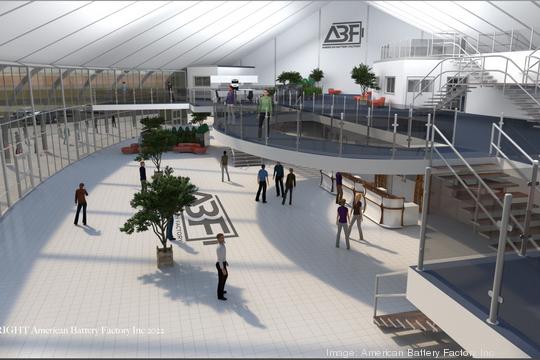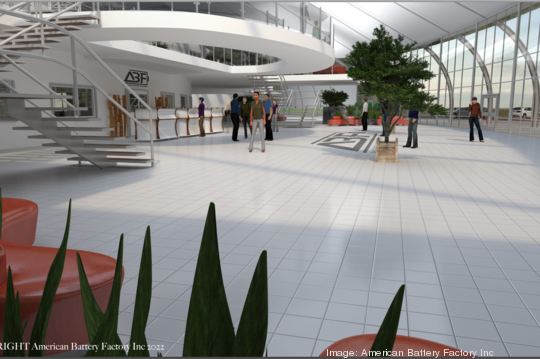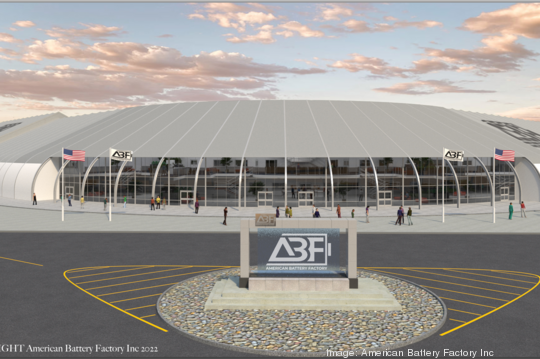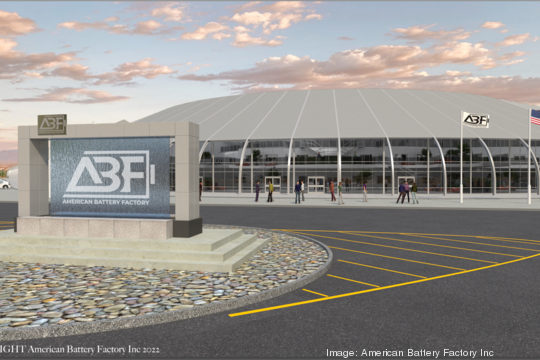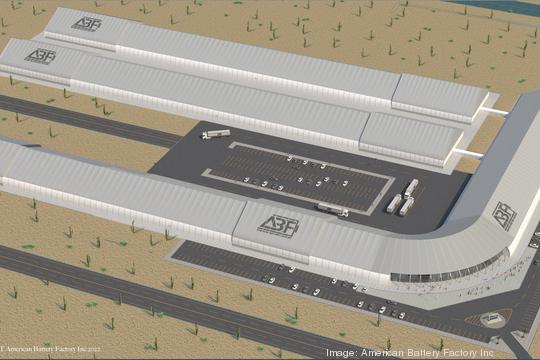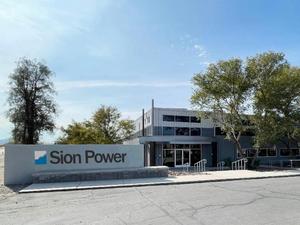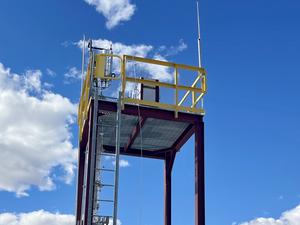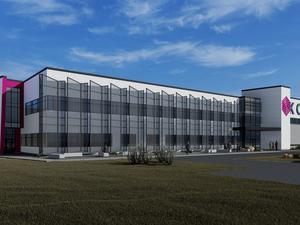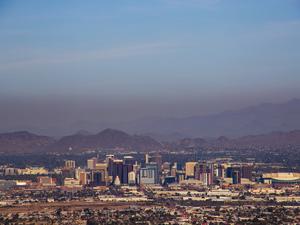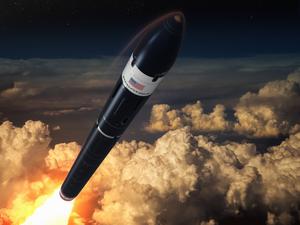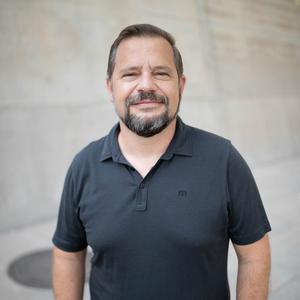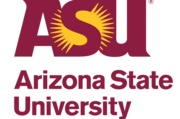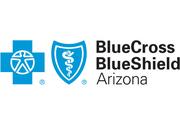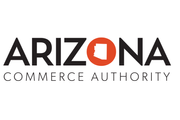After a search across about a dozen states over the course of a year, Utah-based startup American Battery Factory picked Arizona for its first U.S. facility and headquarters this year.
ABF, which was incubated from Lion Energy in 2021, is planning to build a $1.2 billion lithium-iron phosphate battery manufacturing plant that will total 2 million square feet in the Tucson metro.
The new factory, expected to have a $3 billion economic impact to the state, will create an initial 300 jobs for three shifts and scale up to 1,000 employees at full build-out with average annual wages of $65,000.
The initial phase of the company's facility will produce 3 gigawatt hours annually and eventually scale up to 16 gigawatt-hours annually. It will be located at the county's Aerospace and Research Campus close to Tucson International Airport and developed in three phases.
The company said it plans to have its headquarters, research and development center and initial factory module built within the next two years. The building structure will be comprised of a tension membrane structure, which ABF said has been used by Blue Origin and Tesla and is about 30% cheaper than traditional construction to build.
The facility will also be multiple stories high and feature "pods" that are more than 1,000 feet long and used for its assembly manufacturing line, while some of the equipment in the factory will be three stories high, according to ABF.
Lithium-iron phosphate battery cells have a higher life cycle and more thermal stability than lithium-ion batteries, which contain materials such as nickel and cobalt that are not always ethically sourced, said ABF. The phosphate battery cells can be used for energy storage; specific types of electric vehicles including buses, trucks and mining equipment; and military and government applications.
ABF's site search took a year to complete
Paul Charles, president and CEO of ABF, said that the initial search for their new facility started about a year ago. While they wanted to stay in Utah, where Lion Energy is located, Charles said it was difficult to source enough power for their proposed factory.
"We were actually encouraged to come down [to Arizona] by certain officials in Utah, and we're very happy to be here," he told the Phoenix Business Journal.
The company said its initial search involved about 12 states with several sites considered in each state. ABF also looked at the greater Phoenix area, but said it chose Tucson due to the local community, education opportunities and affordable housing and high quality of life, among other reasons.
"The areas they had up there, wonderful locations, however nothing competed quite frankly with what we found down here in Tucson. This site was almost shovel-ready, and to bring in some additional power is really all that was needed with that," Charles said. "To have an opportunity to really be embraced from the local business people to the political folks and educational opportunities here."
Colleges to support job training
Charles added that Pima Community College will also help support and train a workforce for the company through its new 100,000-square-foot education facility, a center of excellence for advanced manufacturing.
"It's exactly what we want to have because our workforce will be trained in incredibly automated robotic machinery that is quite unique here in the U.S.," he said. "For a school to teach equipment that will revolutionize the manufacturing process of batteries here in the U.S., is a unique opportunity for them, but mainly or us."
The Pima County Board of Supervisors approved a lease and purchase agreement with the company this week, while Gov. Doug Ducey also gave his support for the company's plans.
"This transformational investment proves once again that Arizona is the premier destination for emerging technologies. The state-of-the-art factory will produce battery cells critical to our energy future right here in Tucson," Ducey said in a statement.
The Arizona Commerce Authority said ABF is eligible for $22 million in incentives through the agency's qualified facilities tax credit and competes fund. These financial programs are based on jobs and wages met, as well as an application that would have to be filed.
In addition, new jobs at the facility will include operations, production, scientific and technology jobs such as research and development, automation and robotics, executive and headquarter roles. ABF's capital partners is New York-based Guggenheim Partners, which ABF said is a top ESG investment bank in the U.S.
Through the Pima County agreement, ABF will initially lease 70 acres for $455,000 in the first year and increase to $502,250 by the fifth year. ABF can also purchase the overall 267 acres from the county at the end of two years of leasing for $20.9 million.
